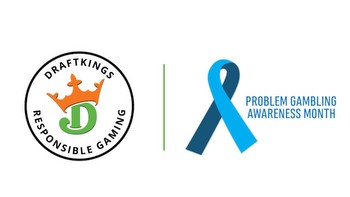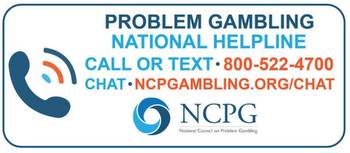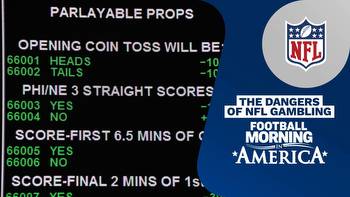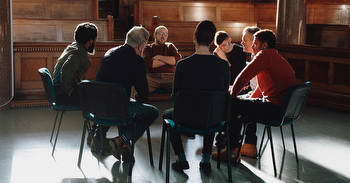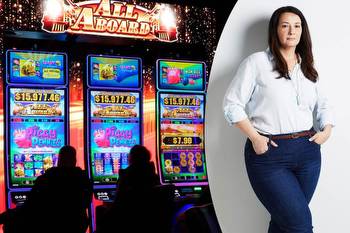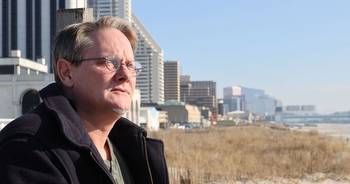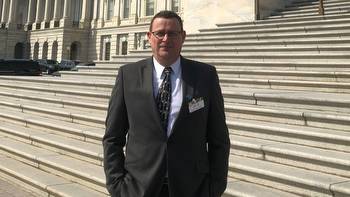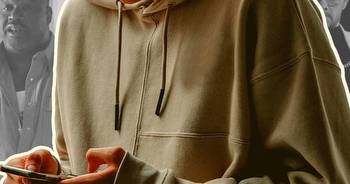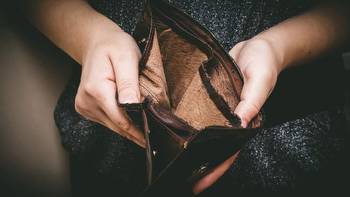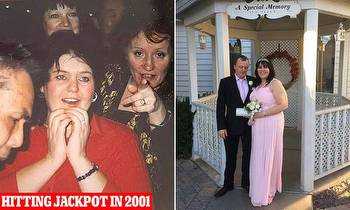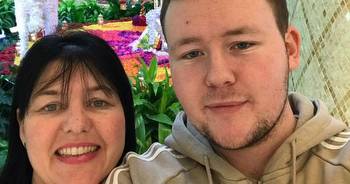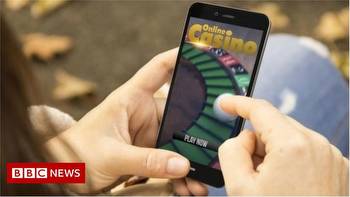Debt, theft and more: Stories of 3 Staten Islanders with a history of compulsive gambling
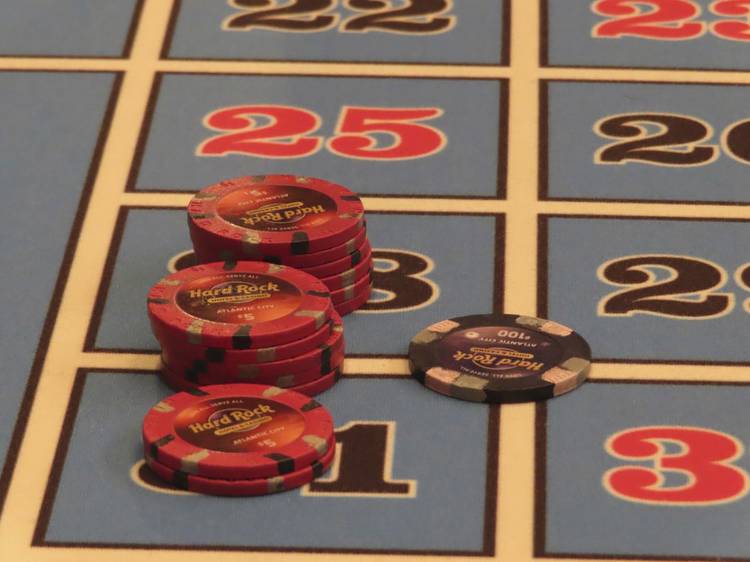
STATEN ISLAND, N.Y. — Shattered friendships and family relationships, alienation, self-loathing and insurmountable debt that can lead to criminal activity: Gambling addiction takes a toll on its victims in a variety of ways.
Gambling opportunities aren’t new. They’ve been around for centuries. History tells us there were gambling games in Ancient China in 2,300 B.C.
In the United States, horse betting, card games, bingo and lottery play have expanded in recent years to include in-person and online casino betting and mobile sports betting, available 24-7 to New Yorkers via their cellphone since January 2022.
And while some can dabble in a healthy way, others battle a “hidden addiction,’’ with no telltale physical signs, only surfacing after life-altering consequences occur, according to experts from Gamblers Anonymous and the state Office of Addiction and Services and Supports (OASAS).
Compulsive gambling affects adults of all income levels and age groups, OASAS said, but treatment and support are available on Staten Island.
To reach the Gamblers Anonymous helpline, call 855-222-5542. To reach Gam-Anon, a support group for family and friends of compulsive gamblers, call 718-352-1671.
A Gamblers Anonymous and Gam-Anon open meeting will be held on Saturday, Oct. 14, at 7 p.m. in Helmsley Hall, across the street from the Church of St. Andrew in Richmond. The event is open to anyone who thinks they or someone they care abut may have a gambling addiction. No registration is required. Doors open at 6:15 p.m.
Below, three recovering compulsive gamblers tell the stories of their plunge into the desperation of compulsive gambling, and the hope, happiness and serenity they found through recovery with Gamblers Anonymous:
KATIE, 43
Though Katie earned a six-figure income and had no children, her gambling addiction still destroyed her finances and personal life, she said.
The 43-year-old South Shore resident would give up just about anything to have money to gamble a few years ago. Experiences with friends and family would always be put aside, she said.
“Ididn’t want to do normal things, because I wanted to use all my money for gambling,’’ she said. “Instead of buying clothes or putting money in savings or going to the movies ... I’d say, ‘Nope. That’s my gambling money.’’'
Katie said she had enjoyed casual casino gambling in Atlantic City for years, but found herself making any excuse to visit, spending hours at blackjack tables and playing high-limit slot machines. “With $50, $100 bets, you can lose a lot of money quickly,’’ she said.
Casinos entice with “free” offers of transportation and iPads, she said, a dangerous lure to the uninitiated. “You’d win the free item and lose $20,000,’’ she said. “It happened to me many times.”
She recalled that when online casino gambling became legal in New Jersey in 2013, things took a terrible turn, as she lived conveniently close to the Outerbridge Crossing.
“You can log into any casino and play,’’ she said. “You just drive over, they locate you, they know you’re in New Jersey. You can sit in a parking lot and lose $10,000.’’
Some nights were “better,’’ she said. “I had nights when I’d win $15,000.”
But she’d quickly give it right back, she recalled.
“When you win, you want to win more, and when you lose, you want to win it right back,’’ she said.
Katie found herself over $150,000 in debt within a few years, she said. Even with an annual income of more than $250,000, she resorted to cash advances on credit cards and home equity loans to try to pay off her debt, she said.
“But once you get out of debt, you free yourself up to gamble more,’’ Katie said. “It’s just so easy to get addicted.
“My life was completely out of control, but I was covering it up to make it look like I was normal,’’ she said. “Basically, I maxed out every credit card. I had no more credit available.”
The convenience of gambling on her phone helped her keep the secret from her friends and family, she said. “I would be visiting family in New Jersey, and I’d be playing on my phone discreetly, playing Blackjack on my phone. Whenever anybody said they were going to New Jersey, I’d say, ‘I’ll ride with you.’ From the outside looking in, I looked like a normal person.”
Her first Gamblers Anonymous meeting changed all that, she said, noting she’ll mark her five-year anniversary in recovery next May.
Though only about 3% of Gamblers Anonymous members are women, she said she felt immediately that she was in the right place.
“I was welcomed with open arms by everyone,’’ she recalled. “The people in the room become your family. You go to meetings, and if you do what you’re told, you will get better, and life will be totally normal again.”
DEREK, 25
Derek was 23 when he won $120,00 on the mobile sports gambling app FanDuel. Days later, as he continued to spend 18 hours a day placing sports wagers on his phone, he said he knew he needed help.
“I still blew through it within a month,’’ he said of his winnings. “And not just blew through that — I made a significant hole for myself on top of that.”
Betting on sports, something dear to his heart as a high school and college athlete, always seemed natural, he said. And the money he lost wasn’t something he even worried about.
“It all felt fake,’’ said Derek, now 25. “You don’t realize it, how it can really not feel like real money.”
By the time he was 20, he’d owed more than $100,000 to credit cards. And more was owed to friends and family.
In the beginning, in high school, it wasn’t too bad, Derek said. “About $50 to $100 a week,’’ he said, adding he had money from part-time jobs, birthday gifts, and he’d fabricate stories to get money from his parents.
While attending college in Massachusetts, he’d constantly crave “action,’’ he recalled, and bets would typically top $1,000. “Once you win big, it just feels like you can’t go back,’’ he said.
He placed wagers on sports through bookies in New Jersey, who’d offer lines of credit of up to $2,000 a week. But eventually, he found his way to casino gambling on his phone — making matters much worse, he said. It was legal at the time in New Jersey, and he soon found himself spending most of each day using multiple accounts in several different names, betting on game outcomes as well as plays and scores during live games.
He once won $35,000 in 30 minutes playing phone Blackjack, but lost it within 32 minutes, he said. “And then I lost double that the next day.”
Yet, Derek said he lost much more than money during his darkest gambling days.
“The time lost and not staying present with people definitely left me with regrets,’’ he said. “I was not present with my friends or family ever ... I always had to run to the basement and place a bet on a live game.”
“I could sit on the couch, watch a movie and lose $60,000, and nobody knew,’’ he said.
Borrowing from friends, then avoiding them or telling lies about when the money would be returned were his daily routine, he said.
“Since I had experience winning, I thought eventually it’d be enough for me, and I’d be able to stop and pay my debts ... but that was never the case,’’ he said.
He said life has changed “significantly’’ since he recognized his helplessness and broke down in tears, prompting his father to drive him to his first Gamblers Anonymous meeting in New Jersey. He recalled being close-minded about recovery at first, waking up the next morning with plans to gamble. “I was building my lineup for the week,’’ he said. But, as he planned, he got a call from a few Staten Island Gamblers Anonymous guys who wanted to chat about the previous night’s meeting.
Working out payment plans to repay his debts with them was encouraging, he said, but that was only part of his recovery. He explained that the stories from fellow members, who shared how their lives have improved since giving up gambling, brought the inspiration and empathy he needed.
“I just thought I was one of the only people who, literally, could not stop gambling for one minute of the day,’’ he said.
Derek warned of the risks of phone gambling and the vulnerability that comes with that first big win. “The risk is definitely there, and once you get a taste of winning big you just don’t know how you’ll react,” he said.
BRUCE W., 81
At 81 years old, Bruce W. has had 53 years to reflect upon the improvement in his life since he stopped gambling on March 8, 1971.
A father to two grown children, Bruce W. has been married for nearly 55 years, has three grandchildren and owns three homes.
But, in his teens and early 20s, none of it seemed remotely possible, he said.
“Insanity’' is what he called the years of compulsive gambling that ultimately led him to petty theft, then eventually to embezzle $150,000 (about a $1,000,000 today) in funds from the top-tier brokerage house he worked for to use exclusively for gambling. He recalled serving a six-month stint at Rikers Island.
“I like to call it a carousel of insanity,’’ said Bruce W., who grew up in a semi-orthodox Jewish home in Bensonhurst, Brooklyn, a neighborhood he described as a hotbed of gambling. “The carousel slows down, but we just don’t get off. We gamble away. We don’t care if we lose our family. We don’t care if we lose our freedom. We don’t care if we lose our finances.”
Bruce W. said that while he stole to finance his gambling and never went into debt, he never spent a dime on anything else. “I had holes in my shoes,’’ he said. “I never went on vacation. I never spent money on anything.”
He recalled he was 28, with a good-paying job, but never accumulated any money. “It was sickening,’’ he said today.
When he hit rock bottom, his wife “dragged,’’ him to a Gamblers Anonymous meeting and joined Gam-Anon, a support group for those with loved ones battling gambling addiction. The group gave her the tools to cope and stay with him, he said. “Without them, I don’t know if we would have made it,” he said.
Like other compulsive gamblers, Bruce W. warned of the lure of early winnings.
As a young teen, his father took him to Aqueduct Racetrack and suggested he pick the Daily Double. “It paid $176, and I said, ‘Boy, this is easy, we’ve got to keep doing this.’ And that’s what got me started.”
A few years later, he found a bookie, then found more. He’d bet on horses and sports through them and at racetracks. “I was making 12 dollars an hour at the time, and I was betting thousands on the weekends,’’ he said.
Paychecks would often not make it home. He’d tell his wife the computers broke down and nobody got paid that week.
At Gamblers Anonymous, he followed the 12-step recovery program based on Alcoholics Anonymous. “It always works for the person who has a desire to stop gambling,’’ he said. “It works because of the love the people in the program have for the people who come into the program.”
GAMBLING HELP
Regional Problem Gambling Resource Centers, including the Richmond University Medical Center Gambling Resource Center and the South Beach Addiction Treatment Center, are funded by OASAS.
The New York State HOPEline, 877-846-7369, operates 24/7, 365 days a year, and will connect anyone in need of supportive services in their community.
To reach the Gambler’s Anonymous helpline, call 855-222-5542. To reach Gam-Anon, a support group for family and friends of compulsive gamblers, call 718-352-1671.








